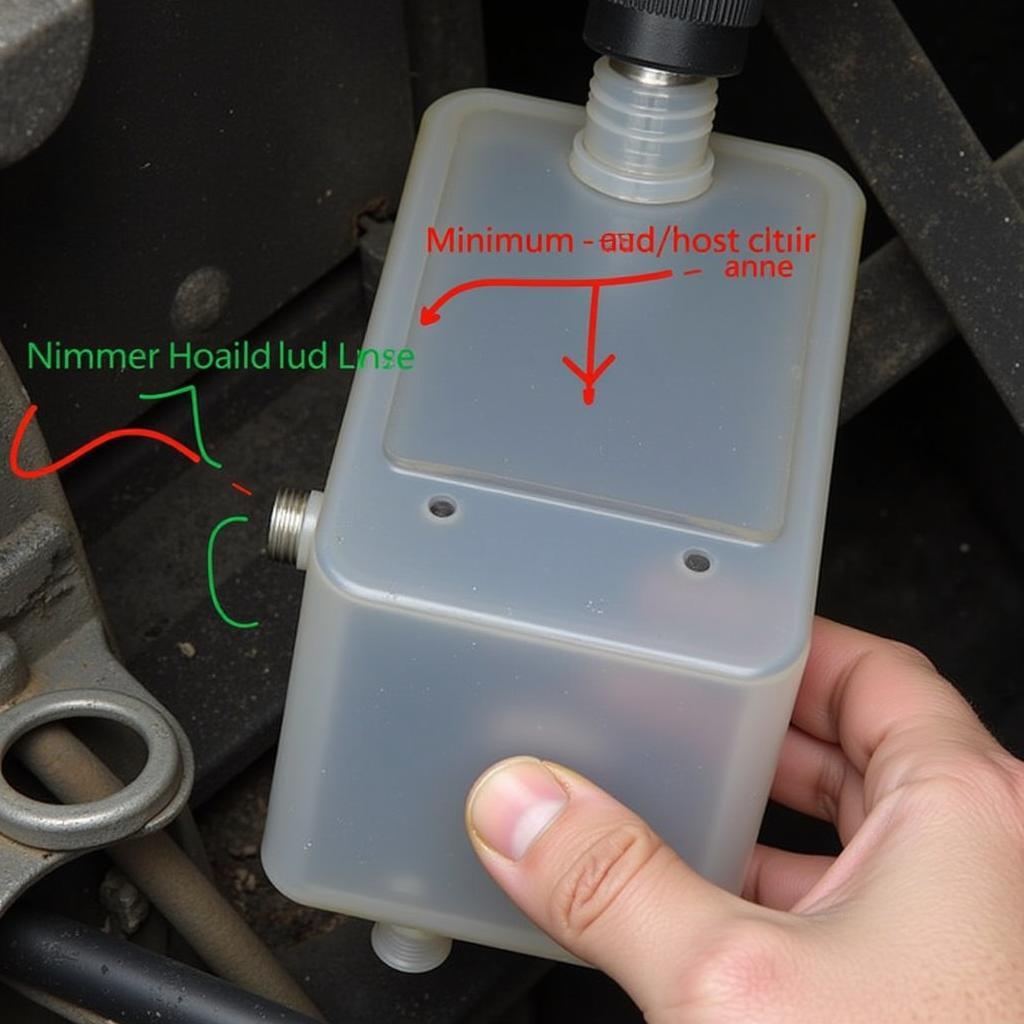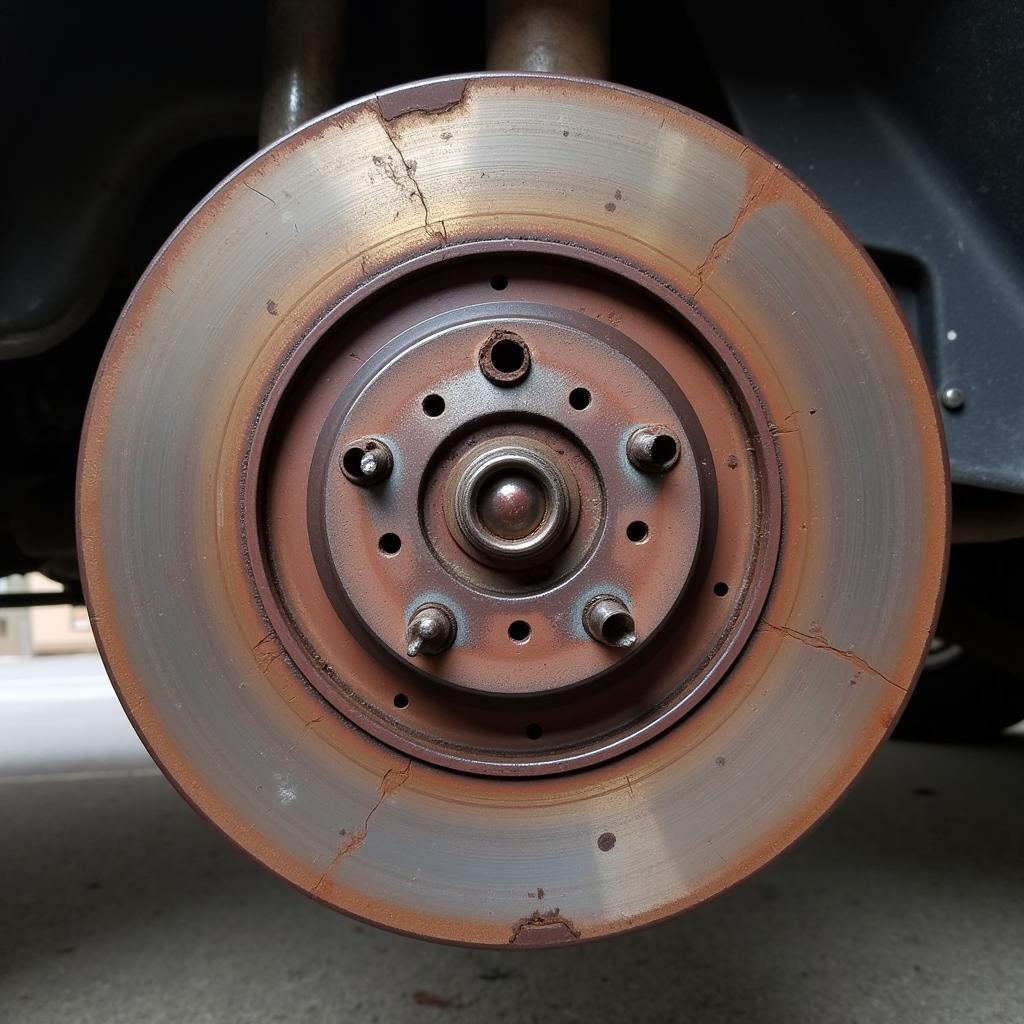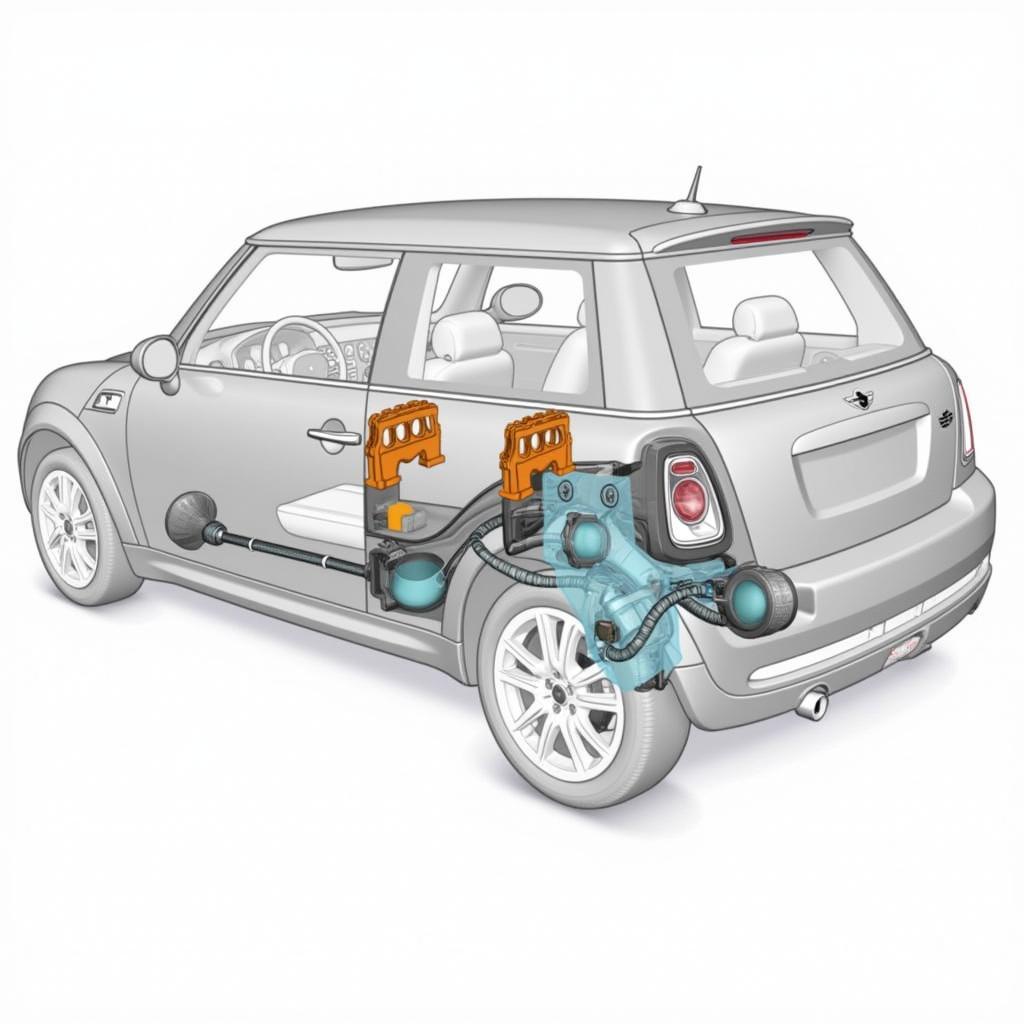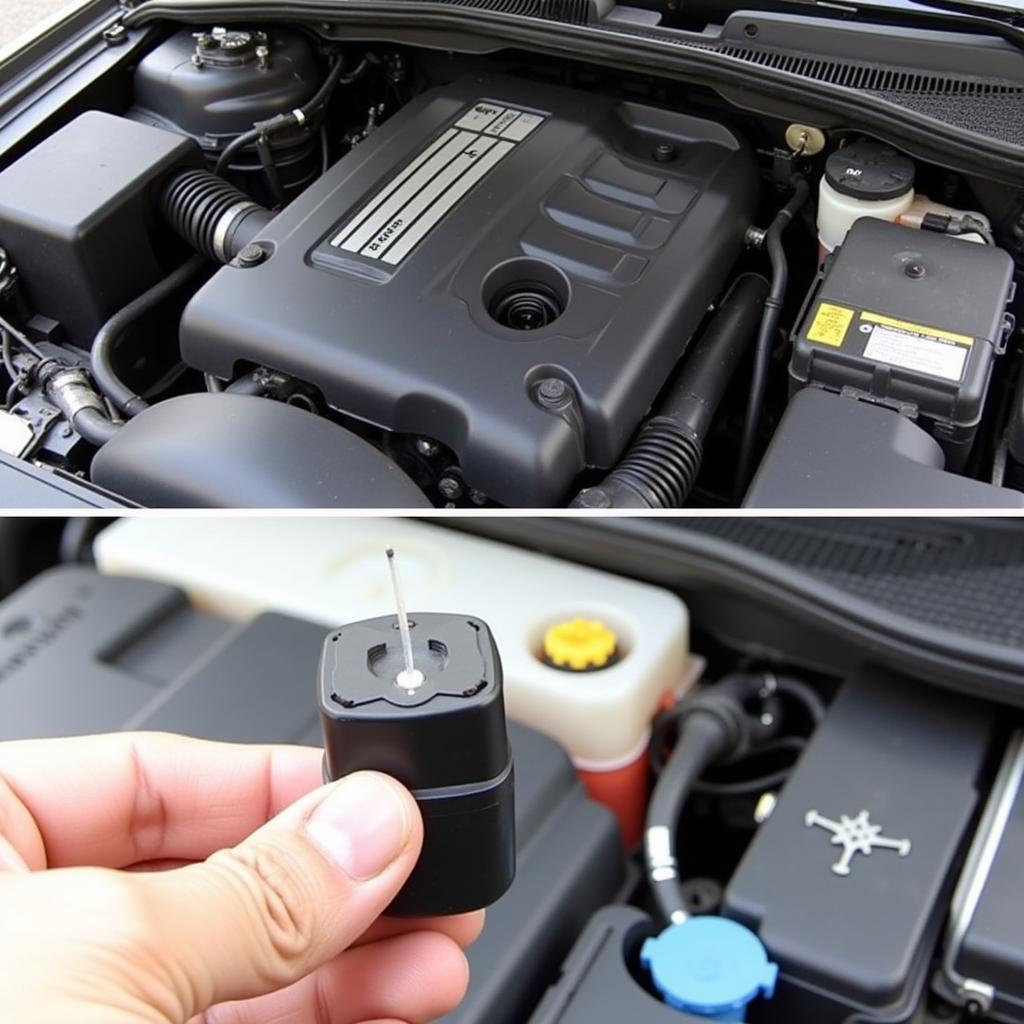That pesky brake warning light on your 2004 Chevy Astro has illuminated, and you’re understandably concerned. A glowing brake warning light can signal anything from a simple parking brake issue to a more serious problem with your braking system. This comprehensive guide will walk you through the common causes of a brake warning light on a 2004 Chevy Astro, how to diagnose the issue, and potential solutions. Let’s get started.
A low brake fluid level is often the primary culprit behind a brake warning light. Other possibilities include a faulty brake light switch, worn brake pads, or issues with the ABS (Anti-lock Braking System). Identifying the root cause is crucial for effective repair. If you’re unsure about any step, consult a qualified mechanic.
Common Causes of a Brake Warning Light
Several factors can trigger the brake warning light in your 2004 Chevy Astro. Here are the most common culprits:
-
Low Brake Fluid: This is the most frequent cause. A leak in the brake lines, worn brake pads, or a failing master cylinder can deplete brake fluid.
-
Parking Brake Engaged: Sometimes, the simplest explanation is the correct one. Ensure the parking brake is fully released.
-
Faulty Brake Light Switch: This switch, located near the brake pedal, signals the brake lights to activate. A malfunctioning switch can trigger the warning light.
-
Worn Brake Pads: Brake pads have wear indicators that activate the warning light when they reach a certain level of wear.
-
ABS Issues: Problems within the Anti-lock Braking System, such as a faulty sensor or low ABS fluid, can illuminate the warning light.
 Chevy Astro Brake Warning Light – Low Fluid
Chevy Astro Brake Warning Light – Low Fluid
Diagnosing the Problem
Before rushing to a mechanic, you can perform some basic checks yourself.
-
Check the Parking Brake: Make sure it’s fully disengaged.
-
Inspect Brake Fluid Level: Locate the brake fluid reservoir under the hood and check the fluid level. If it’s low, add the correct type of brake fluid. A consistently low fluid level suggests a leak that needs professional attention.
-
Check Brake Lights: Have someone observe the brake lights while you press the brake pedal. If they don’t illuminate, the brake light switch may be faulty.
 Chevy Astro Brake Warning Light – Worn Brake Pads
Chevy Astro Brake Warning Light – Worn Brake Pads
If the parking brake and brake fluid levels are fine, and the brake lights are working, the issue might be more complex, requiring professional diagnosis. “A seemingly simple brake warning light can sometimes point to a more serious underlying issue,” warns John Miller, a certified automotive technician with over 20 years of experience. “Don’t ignore it, especially if the problem persists after checking the basics.”
Solutions and Repairs
The solution depends on the diagnosed problem. Low brake fluid might require topping off the fluid and inspecting for leaks. Worn brake pads necessitate replacement. A faulty brake light switch or ABS issues often require professional repair. Remember, if you’re uncertain about any step, seek professional assistance.
You can sometimes find specific solutions online. For example, if you suspect a parking brake issue, see parking brake warning light chevy astro 2004. If you think a blown fuse might be the culprit, blown fuse turning on brake warning light might help. Alternatively, toyota yaris brake warning light can offer insights, even if you have a Chevy Astro, as some braking system principles are universal.
Conclusion
A brake warning light on your 2004 Chevy Astro shouldn’t be ignored. By understanding the potential causes and following the diagnostic steps outlined above, you can effectively address the issue and maintain a safe driving experience. “Addressing brake issues promptly can prevent more costly repairs down the road and, most importantly, ensures your safety on the road,” advises Sarah Chen, a leading automotive safety expert. Remember, if you encounter any difficulties, don’t hesitate to seek the help of a qualified mechanic to diagnose and fix the brake warning light on your 2004 Chevy Astro.
FAQ
-
Can I drive with the brake warning light on? It’s highly discouraged. A glowing warning light indicates a potential problem with your braking system, which could compromise your safety.
-
How often should I check my brake fluid level? At least once a month, or as recommended in your owner’s manual.
-
How much does it cost to replace brake pads? The cost varies depending on the type of brake pads and labor rates.
-
What is the lifespan of a brake light switch? It varies, but they typically last several years.
-
How can I prevent brake problems? Regular maintenance, including brake inspections and fluid changes, can help prevent issues.
-
What is ABS, and why is it important? ABS, or Anti-lock Braking System, prevents wheel lockup during hard braking, enhancing steering control.
-
Is it difficult to replace a brake light switch myself? It’s a relatively simple task for those with basic mechanical skills, but if you’re unsure, consult a mechanic.


